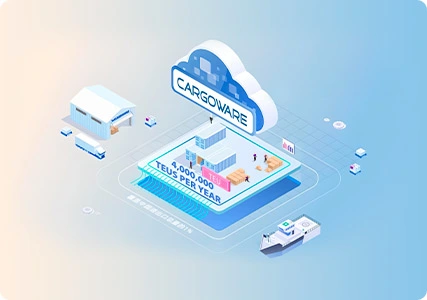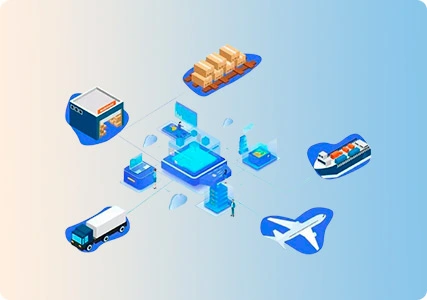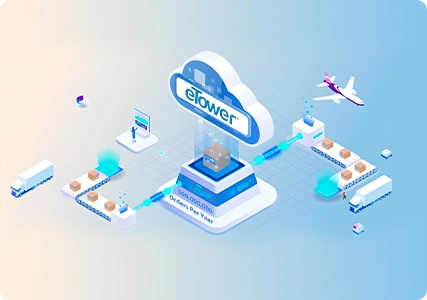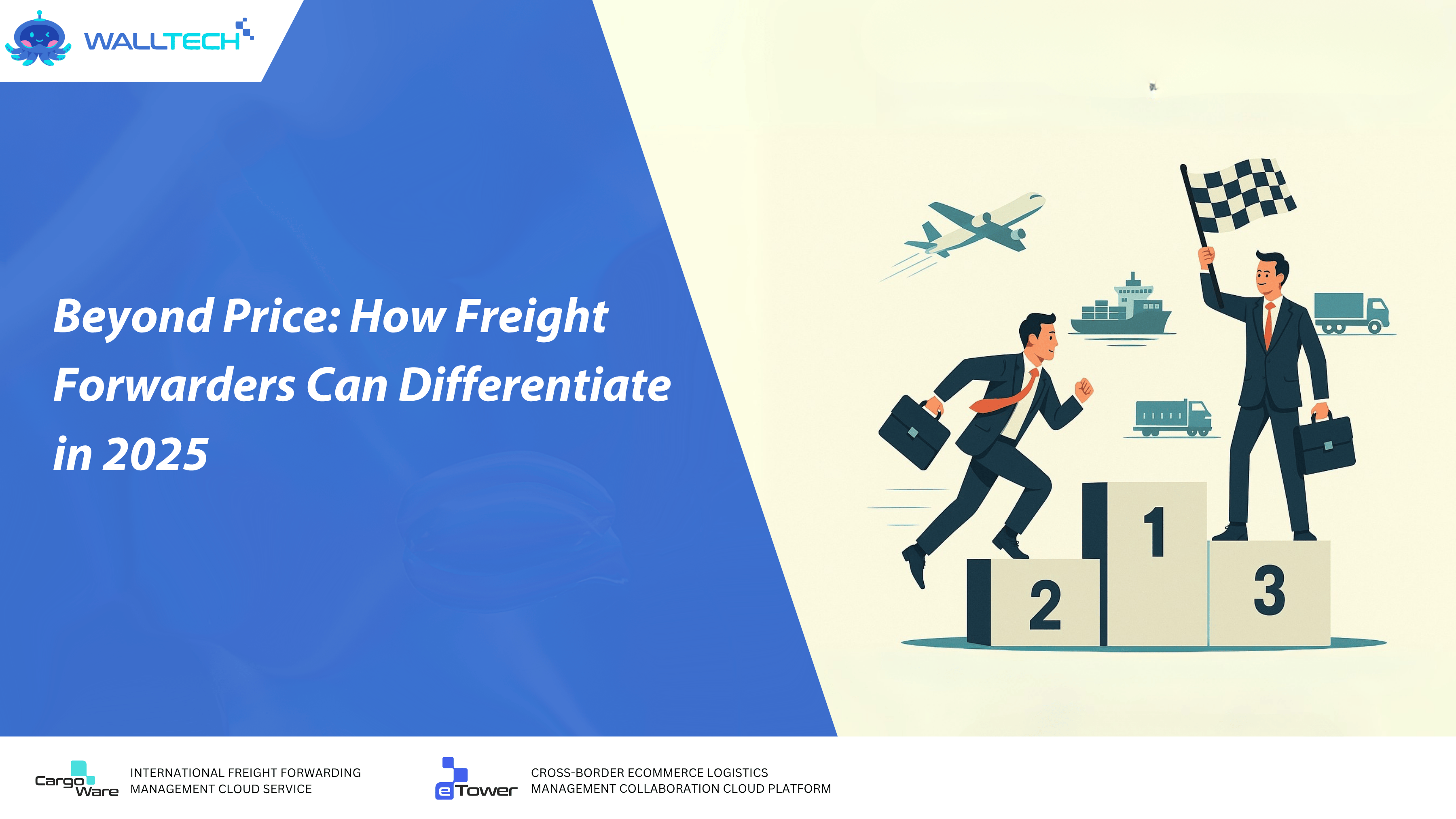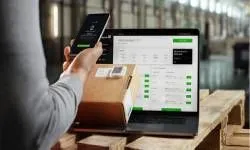Third-party logistics (3PL) is an integrated operation that provides services related to parcel handling, distribution, parcel order fulfilment, reverse logistics and other supply chain entities. 3PLs need to be technology driven and run an efficient system to accomplish business management. This article lists tips for improving 3PL management and making the most of this partnership.
The place of 3pl in e-commerce logistics
Logistics is an important aspect of an organization and is often outsourced to a 3PL provider. 3PL partners need to be efficient in order management and delivery and return queries, which is often a tedious task for any organisation. It supports the organization in achieving the big picture and setting its long-term future path goals.
E-commerce has played a crucial role in the development of the 3PL. Due to the sudden crisis of COVID-19, the demand for 3PL service providers, from healthcare and personal care to retail and aftermarket, surged overnight.
This demand is only expected to increase further as time goes on. Retailers and manufacturers are increasingly focusing on their core expertise and on complex areas such as outsourced logistics, which are playing a crucial role in driving demand for 3PL providers. By 2027, the global 3PL market is expected to reach US$178,990.4 million.
Signing any contract too early without a full understanding is a mistake that can lead to problematic 3PL relationships. To maximise the benefits of working with a 3PL provider, both parties should set clear expectations from the outset. Clearly defining your requirements and ensuring they are met will ensure a rewarding partnership.
The 5 winning qualities of a 3PL
Strong 3PLs recognize their role as an extension of your brand. They understand the importance of this responsibility and take their commitment to maintaining your reputation seriously. Of course, not all 3PLs are created equal.
How can you ensure that your third-party suppliers support your customers' high standards? Metrics such as stock availability, order accuracy and on-time delivery are now the order of the day, but it's also important to consider more intangible qualities. Here are five winning qualities to keep in mind.
1. Availability of resources and flexibility
Seasonal fluctuations, sales peaks and troughs, business growth ...... Can your 3PL scale its operations to meet your needs? Often, 3PLs have the scalable resources - labour, space, technology - to meet your changing needs and ensure you can deliver for your customers. With the right resources at your fingertips, you'll be able to respond faster to your customers' needs.
2. Continuous communication
The most effective third-party solutions are those that are tailored to your specific requirements. Does your 3PL need time to understand your needs and challenges so they see the big picture and understand the details in advance?
What happens when things don't go according to plan? Whether it's periodic production disruptions or natural disasters such as hurricanes or blizzards, communication is key. A good 3PL will proactively communicate when problems arise, so you can respond quickly, alert employees and customers and find alternative solutions.
3. Provide fresh and innovative ideas
According to the 2017 3PL Study, 73% of shippers said their 3PL provided them with innovative ways to improve logistics efficiency.
Effective 3PLs will ask you questions and make suggestions to help improve operations and provide better service to your customers. They are also skilled at troubleshooting and coming up with creative solutions. They may re-engineer processes or apply best practices to ensure optimum performance.
4. Collaborating on values
More than half (55%) of shippers surveyed in the 2017 3PL study value collaborative strategies. For the best results, look for 3PLs who take a consultative rather than transactional approach and will work with you to identify key issues and help you come up with processes that can respond to change so you don't have to keep reinventing the wheel.
5.Commit to continuous improvement
Due to the Amazon effect, your customer's expectations are constantly evolving. Your 3PL should always be looking for new ways to increase efficiency, control costs and improve service. Ideally, they will demonstrate a unique focus on process improvement, attention to detail, and a commitment to safety. quality programs such as LEAN and 6 Sigma help deliver consistent, measurable results.
Loyal 3PLs view their relationship with you as a long-term partnership. They may be willing to invest in space, technology and/or equipment to take your business to the next level. If you use these five qualities as a benchmark for their performance, your customer service is likely to be at the top of the list.
10 ways to improve your 3PL management
1. Measure only what matters There are many factors to report and measure.A focused set of KPIs should be the most important and should focus on achieving the objectives. 3PL partners' vision and focus should always be on improving the company's profits, not just creating reports. KPIs should break down objectives into a granular form. Understand or establish ways in which you can work with your logistics provider to achieve specific benchmarks. Customer satisfaction should always be the main KPI and it is recommended that KPIs are closely monitored and reviewed from time to time in light of changing needs and real-time issues.
2. Ensuring efficient software is used As technology is a major player in today's world, it is vital to understand the software applications that your logistics partner will be using. Suppliers should use high-end software applications to manage operations, inventory and delivery. A complete software solution with all the necessary customizations will facilitate real-time analysis and unified logistics preparation. For 3PL management, software is one of the most critical components, as every operation can be monitored, every activity can be tracked, and all related challenges can be overcome.
3. outline the rhythm of regular communication Communication is an essential element of successful 3PL management. Establishing proper communication can bring transparency between the logistics provider and the company. Communication can also be extended in the form of contracts that contain expectations of the services to be provided, goals to be achieved, target milestones, escalation processes and point of contact information. It is recommended to have dedicated staff to handle the entire communication with the supplier. In addition, a clearly defined escalation process for the contract helps to avoid any confusion in the event of missed, delayed or damaged deliveries. Depending on the level of urgency, regular daily or weekly communication with your 3PL partner is essential. Setting up a schedule of meetings and phone calls and consistently following up on the schedule is essential to a successful 3PL partnership. Communication is the most effective way to ensure that goals are met and progress is made.
4. Expand your request for proposal All operational and other relevant data should be shared as needed so that 3PL partners can conduct a detailed analysis. The more research your 3PL partner has on all of your organisation's processes, transactions, metrics and workflows, the better it will be able to create better bespoke solutions at the right cost.
5. Share data without hesitation One of the biggest mistakes in 3PL outsourcing is the reluctance to share the necessary data. This leads to partnerships that don't work best because relationships and culture matter. Unless there is good chemistry between a company and its 3PL partners, operations will not be optimal and seamless. It is vital to provide all the necessary data and trust that your 3PL partner will use it to provide you with the best possible service.
6. Set realistic expectations You should set realistic expectations for your 3PL provider. For example, if a company has major operational problems, you should not expect your logistics partner to solve them overnight. Setting realistic expectations from the outset is key so that the company and partner can work together and resolve each issue over time.
7. Clearly state the terms and conditions of the contract Although it may take extra time to gain sufficient clarity, companies should ensure transparency about the terms of payment, the services to be performed and the expected operational performance. Mutual understanding is very important. Lack of understanding can lead to disputes and damage the relationship between the 3PL partner and the client company.
8. Define long-term contracts You should give your 3PL partners maximum freedom to express their ideas. They should be able to involve maximum capital investment which can be amortised over time. Although there is some risk associated with long-term contracts, higher investment by the 3PL provider means it wants to be involved in the highs and lows of the partnership.
9. appropriate resources should be allocated to manage the relationship Resources on the client side should be proactively managed. 3PL partners should have appropriate access to provide the best possible service. Greater common goals can be easily achieved if the 3PL partner works with the company rather than for it. Essential functions that can be better handled by the 3PL partner should be assigned to it as soon as possible. In this way, it can improvise and help achieve results and successfully expand the association.
10. Ensuring teamwork for greater success Collaboration is necessary, so 3PL partners should always look for opportunities to work side by side with the company and help with continuous improvement. Combining the business expertise of the company's staff with 3PL's logistics experience can create a more effective partnership that will drive profits for both the company and the partner.
In summary, Companies should conduct a thorough internal analysis to make the most of logistics outsourcing. The right approach from management to outsourcing can also help improve throughput and revenue. The above tips can help improve the overall experience between you and your 3PL partner so that both parties can achieve higher levels of growth and profitability in an integrated manner.
eTower helps 3PLs around the world improve supply chain efficiency, streamline operations and manage operational costs by providing efficient global logistics software. Find out how you can customize our integrated logistics system software to meet your specific business objectives and provide you with a competitive advantage.
